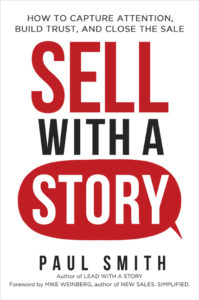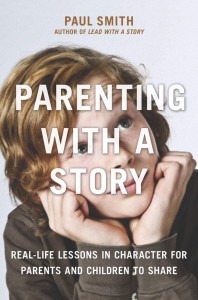Podcast: Play in new window | Download | Embed
Subscribe: RSS
Podcast (parenting-with-a-story-podcast-series): Play in new window | Download | Embed
Subscribe: RSS

I learned one of my most memorable lessons on chivalry as a college student in the early 1990s. One Saturday, my girlfriend and I were walking on a sidewalk downtown. As we walked past a middle-aged African American man sitting on a bench, he said to me, loudly, “Young man, show some respect. Walk curbside of that pretty lady.”
I felt like I should be embarrassed, even though I wasn’t sure why. But I switched places with her anyway. After thinking about it for a few minutes, it occurred to me he was teaching me a lesson that probably dated from decades, if not centuries earlier. When walking along the side of a road with someone, the one walking closest to traffic is more likely to get hit by cars speeding by (or horses before that).
Or maybe less dramatically, that person is more likely to end up getting splashed with mud. The person farther from the street is protected from that by the person walking curbside. I figured it must have been considered chivalrous for a man to protect his lady by walking curbside. I clearly wasn’t showing my girlfriend that respect. And this stranger let me know.
But I had more lessons to learn. Just knowing what to do isn’t enough. Knowing how is also important.
I was pretty proud of my newfound chivalry, so the next few times my girlfriend and I went for a walk I made sure to point out that I was walking curbside. The first time I mentioned it, she was probably genuinely flattered. But after two or three times, her polite but annoyed smile let me know my pride was overshadowing the good deed. Apparently, part of being a gentleman is doing so without bragging about it.
Perhaps that lesson stuck with me. Because many years later, right after I was married, I finally got it right. I had, of course, told my wife that I loved her many times in our early marriage. But one night I asked her when she really knew for certain that I did. Her answer surprised me. She said there was a very specific moment that convinced her. She had a habit of sleeping completely covered with blankets, almost to the top of her head. She just left a small opening in the covers near her mouth, which I affectionately dubbed her “breathe hole.”
She answered my question by reminding me of something I’d done one night that I wasn’t aware she even knew about. I’d gotten up in the middle of the night to use the bathroom. When I got back in bed, I must have tugged on the blanket too much, because her breathe hole had collapsed. Now her whole face was covered. So, while she was still asleep (or so I thought), I quietly reshaped the blanket into a proper opening over her mouth the way she liked it, and rolled over to go back to sleep.
Apparently, even though she kept her eyes closed, she woke up just enough to notice what I was doing. And while she did appreciate having her breathe hole fixed, what she appreciated more was that I did so even though I thought she was still asleep and would never know what I did. That, she said, was when she knew that I really loved her.
As with all these stories, I encourage you to share this with your kids, and then have a discussion about it. Here are some questions to get you started:
- What does “chivalry” mean? What does chauvinism mean? What’s the difference?
- What are some examples of chivalry? What are some examples of chauvinism?
- What are some examples of chivalry that some people might not appreciate today?
- How does bragging about something nice you did detract from it?
[You can find this and over 100 other character-building stories in my book, Parenting with a Story.]
—
 Paul Smith is one of the world’s leading experts on business storytelling. He’s a keynote speaker, storytelling coach, and bestselling author of the books Lead with a Story, Parenting with a Story, and Sell with a Story.
Paul Smith is one of the world’s leading experts on business storytelling. He’s a keynote speaker, storytelling coach, and bestselling author of the books Lead with a Story, Parenting with a Story, and Sell with a Story.


 Connect with him via email here.
Connect with him via email here.
Follow him on Facebook, LinkedIn, Twitter, and Instagram.
Sign up for his newsletter here to get one new story a week delivered to your inbox.


I love this! What a sweet sharing!
Hugs to you for being such a kind human!